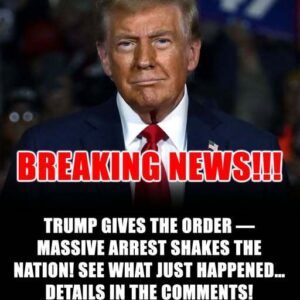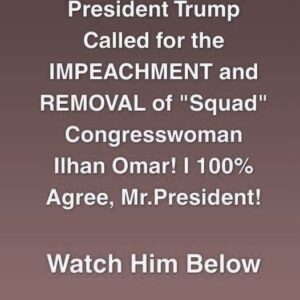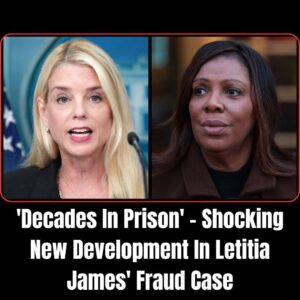A newly resurfaced whistleblower allegation—supported by recently declassified FBI interview summaries—is raising the possibility of significant legal trouble for Sen. Adam Schiff (D-CA), one of the most well-known Democratic lawmakers in the country and a longtime figure in national security and intelligence policy. While no charges have been filed and the facts remain under review, the claims have sparked a wave of renewed scrutiny over the boundaries of congressional authority, the handling of sensitive intelligence material, and the degree to which elected officials should be held accountable when allegations of classified leaks arise.
At the center of this controversy is a whistleblower who previously worked within the national security apparatus and who claims that Schiff may have disclosed or mishandled classified information during his time in the U.S. House of Representatives. Schiff served for years on the House Intelligence Committee—first as ranking member during the early stages of the Trump–Russia investigation and later as its chairman. During that period, he was one of the most visible voices in matters relating to intelligence oversight, national security assessments, and the interpretation of confidential investigative findings.
The allegations, now public due to newly declassified FBI interview reports, suggest that statements Schiff made to the media and to fellow lawmakers at the time may have contained sensitive or classified details that were not authorized for release. Former federal prosecutor Brett Tolman said in recent interviews that, depending on the nature of the information involved, the law carries strict penalties for knowingly leaking protected material. If the claims were proven true—a long road that would require extensive investigation, prosecutorial review, and ultimately a jury trial—Schiff could face significant fines and potentially years in federal prison.
The Origins of the Allegations
The whistleblower’s claims date back to the height of the politically charged Trump–Russia investigation between 2017 and 2019. During those years, the House Intelligence Committee played a central role in reviewing classified evidence, interviewing witnesses behind closed doors, and examining intelligence produced by federal agencies. Committee members, including Schiff, frequently appeared on television and issued statements that summarized or interpreted the findings they were hearing in private.
The whistleblower, whose identity remains confidential due to federal protections, alleges that certain public comments made by Schiff during that period referenced classified information. The whistleblower further claims Schiff may have selectively disclosed portions of intelligence assessments to reporters or staff in a way that went beyond what was permissible under committee rules.
In most circumstances, members of Congress do have unique access to classified material, and the Constitution provides broad protections for speech made within the scope of legislative duties. Known as the Speech or Debate Clause, this protection often shields lawmakers from prosecution related to legislative activity. However, the clause has limits. Federal courts have held that the protection does not always apply to disclosures made outside official proceedings, particularly if information is shared with the public or the press without authorization.
This distinction is precisely what makes the whistleblower allegations legally complex. If Schiff’s comments are considered part of legislative oversight, he could be protected. If they are considered unauthorized public disclosures, the legal landscape shifts dramatically.
Newly Declassified Documents Intensify Scrutiny
The reason this controversy has resurfaced now is tied to a batch of FBI interview summaries—known as FD-302 forms—that were recently declassified. These documents reportedly reveal that at least one former intelligence official believed Schiff made statements publicly that closely resembled classified briefings he had received privately.
It is important to note that these interview summaries do not themselves constitute proof of a crime. They reflect the perceptions and recollections of witnesses, not formal findings by investigators. Still, their release has been enough to prompt renewed calls from some lawmakers for a Justice Department review.
Legal experts caution that interpreting such documents requires care. Federal intelligence matters often involve layers of classification, complex briefing procedures, and differing understandings of what constitutes sensitive content. A statement that appears to refer to classified material may, in some cases, be drawn from unclassified sources or already-public reporting. Sorting out what came from where is often exceptionally difficult.
Potential Legal Exposure
Despite the uncertainties, the whistleblower’s allegations raise the possibility of significant legal exposure. Former federal prosecutor Brett Tolman addressed the issue publicly, noting the severity of penalties for unauthorized disclosure under federal law.
“The fine is up to $250,000 for every leak that’s charged,” Tolman said when describing the potential consequences if prosecutors were to bring a case. He stressed, however, that the number of charges would depend heavily on the evidence—specifically, how many statements, documents, or briefings prosecutors believed were mishandled.
Under U.S. law, knowingly disclosing classified national defense information to someone not authorized to receive it is a felony. Penalties vary depending on the statute used, but they can include:
Heavy fines
Loss of security clearance
Possible imprisonment of up to 10 years per violation
Increased penalties if disclosures endanger intelligence sources, methods, or ongoing investigations
For a sitting senator, even a single such charge could be politically devastating. Multiple counts would amplify the stakes dramatically.
There is also the question of whether Congress would intervene. In rare circumstances, lawmakers can face internal disciplinary proceedings, including censure or expulsion, if members believe conduct has violated ethical or legal obligations. Whether such actions would be taken in this case is unknown.
Schiff’s Response and Public Reaction
Sen. Schiff has historically denied any wrongdoing when similar accusations surfaced during his time on the House Intelligence Committee. He has repeatedly argued that his public comments were rooted in publicly available information, legitimate oversight duties, or non-classified interpretations of classified material.
As of now, Schiff has not responded directly to the newly surfaced whistleblower allegations. Supporters of the senator suggest that the claims are politically motivated and that similar accusations have arisen in the past without leading to charges or disciplinary action.
Critics, however, argue that the new declassified documents merit closer scrutiny, especially given Schiff’s longtime role overseeing intelligence agencies and investigations. Some have called for a full congressional ethics review or a special counsel appointment, though no such proceedings have yet been initiated.
The broader public reaction has divided along predictable political lines, with supporters of strict secrecy laws emphasizing the seriousness of classified leaks, while others warn against using national security statutes to target political rivals.
The Broader Debate: Classified Information and Congressional Oversight
Beyond the immediate question of Schiff’s legal exposure, the case underscores a larger and ongoing policy debate: How should the federal government balance the need for secrecy in intelligence matters with the public’s right to know?
Members of Congress are in a unique position. They are entrusted with access to some of the country’s most sensitive information, yet they are also elected officials expected to speak to the public about major national issues. Determining where transparency ends and security begins has always been complicated.
Schiff’s situation—regardless of how it ultimately resolves—illustrates the tensions built into this system:
Congressional oversight requires candid access to classified materials.
Democracy requires public accountability and transparency.
National security demands strict control over sensitive information.
When disagreements arise about where these boundaries lie, they can quickly become political flashpoints.
What Happens Next
At present, the allegations remain exactly that—allegations. No charges have been filed. Prosecutors have not announced any active investigation. The Justice Department typically hesitates to pursue cases involving potentially protected legislative activity unless the evidence is overwhelming.
Still, the release of new documents and the credibility of the whistleblower are enough to keep the matter in the public eye. Legal analysts expect that any move toward prosecution, if it were to happen at all, would require:
A determination that the disclosures were not protected by the Speech or Debate Clause
Proof that the information involved was classified, sensitive, and knowingly shared
Evidence strong enough to overcome the high legal threshold associated with congressional actions
In the absence of such certainty, the case may remain confined to political debate rather than legal consequence.
For now, what remains clear is that one of the most prominent lawmakers in modern congressional history faces an uncertain landscape. Whether the allegations ultimately lead to legal proceedings, political repercussions, or simply fade with time, the controversy serves as another reminder of how delicate the management of classified information can be—and how powerfully it can ripple through the American political system.





